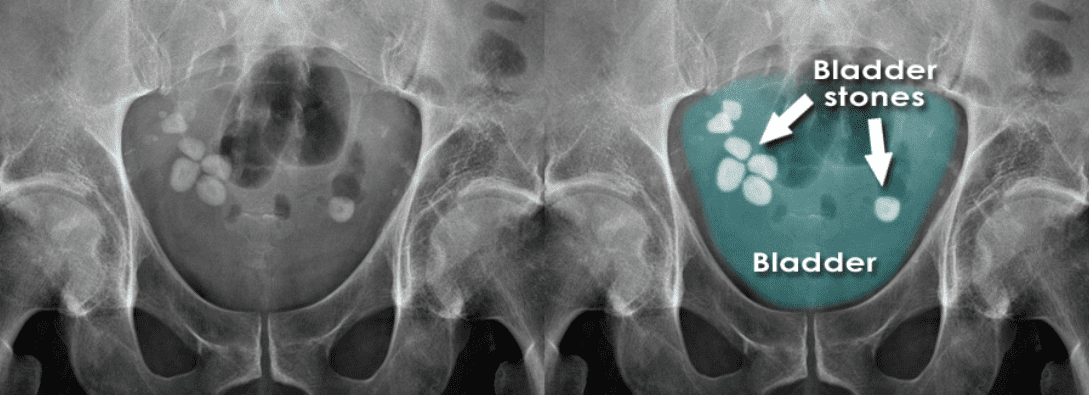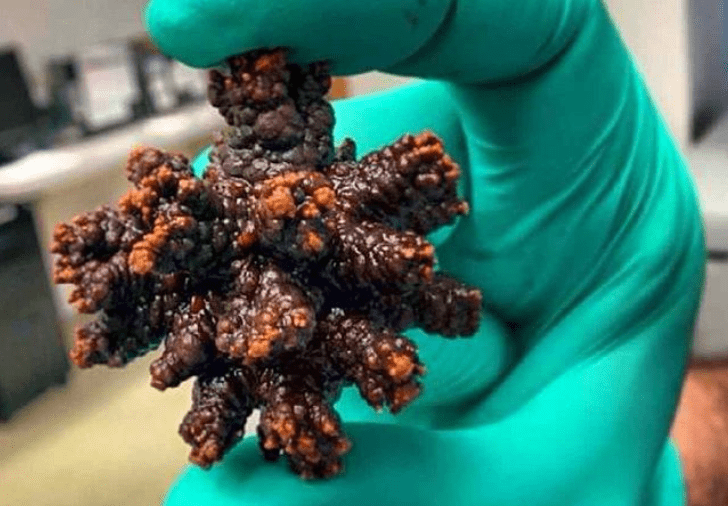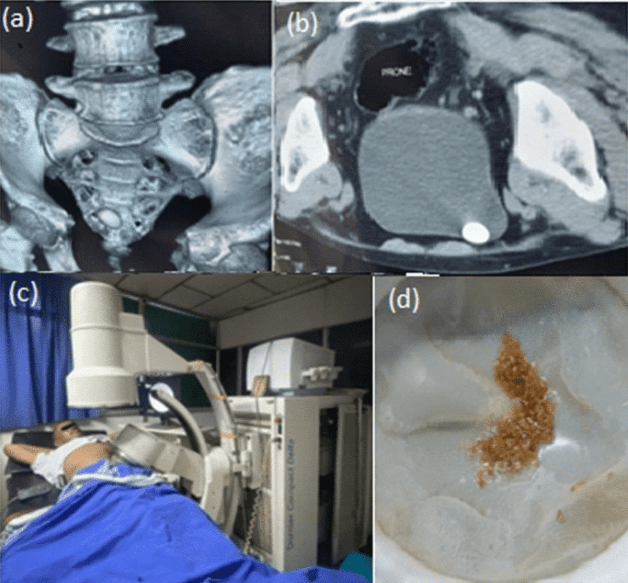Bladder Stones and Bladder Stone Treatments at UPNT

What Are Bladder Stones?
How Bladder Stones Form
Bladder stones typically form when urine remains in the bladder for too long, concentrating minerals like calcium, magnesium, and uric acid. Over time, these minerals stick together and harden, leading to the development of stones that can range in size from tiny granules to large, golf-ball sized masses.
Causes: Enlarged Prostate (BPH)
One of the most common reasons for bladder stones, especially in men, is Benign Prostatic Hyperplasia (BPH). An enlarged prostate can block the flow of urine, preventing the bladder from emptying properly. This stagnant urine becomes the perfect environment for stones to form.
At UPNT, we recognize that addressing BPH is crucial for long-term bladder health. In many cases, we offer treatment for both the bladder stones and the underlying prostate enlargement — either during the same procedure or as a planned follow-up. Treating BPH can significantly reduce the risk of future bladder stones and improve urinary symptoms overall.
Causes: Foreign Bodies in the Bladder
Occasionally, foreign objects—such as urinary catheters, surgical implants, or other materials—can serve as a “seed” around which stones form. Foreign bodies disrupt normal bladder function, causing urine to pool and minerals to deposit over time.

Symptoms of Bladder Stones
Bladder stones can cause a variety of symptoms that may be mild at first but worsen if left untreated.
Common Warning Signs
- Frequent urination, especially at night
- Painful urination (dysuria)
- Blood in the urine (hematuria)
- Lower abdominal pain
- Difficulty starting urination
- Interrupted urine flow
When to Seek Medical Attention
If you experience any of these symptoms, especially blood in your urine or ongoing pain, it’s important to seek medical care promptly. Early diagnosis leads to easier treatment and better outcomes.
How We Diagnose Bladder Stones at UPNT
At UPNT, we utilize a comprehensive approach to quickly and accurately diagnose bladder stones.
Physical Exams and History
Understanding your symptoms and medical history is our first step. We perform a detailed physical exam, including checking for bladder distension and prostate enlargement in men.
Imaging and Diagnostic Tests
We confirm the presence of bladder stones through:
- Ultrasound imaging
- X-rays (KUB – Kidney, Ureter, and Bladder X-ray)
- CT scans
- Cystoscopy (a visual inspection of the bladder using a small camera)

Treatment Options for Bladder Stones
Your treatment plan at UPNT will be customized to your needs, depending on the size, number, and type of stones.
Endoscopic Bladder Stone Removal
Small and medium-sized stones can often be removed with a minimally invasive procedure called cystolitholapaxy. During this outpatient procedure, a thin tube with a camera and surgical tools is inserted through the urethra to break up and remove the stones.
Bladder Stone Surgery
For very large stones or stones complicated by bladder abnormalities, traditional or robotic-assisted surgery may be necessary. Our team is highly skilled in advanced surgical techniques to ensure the best possible recovery.
Introducing ESWL for Bladder Stones at UPNT
We’re excited to offer Extracorporeal Shock Wave Lithotripsy (ESWL) to select patients with bladder stones, bringing a non-invasive, cutting-edge solution to our practice.
What Is ESWL?
ESWL uses focused sound waves to break stones into smaller fragments that can pass naturally through the urinary tract. No incisions, no scopes—just effective, outpatient treatment.
Benefits of ESWL for Bladder Stones
- Non-invasive and virtually painless
- Short recovery time
- Often performed without the need for anesthesia
- Excellent option for appropriate bladder stones, regardless of size
Ideal Candidates for ESWL
Not everyone qualifies for ESWL, but many patients with bladder stones are good candidates. It is best suited for individuals who have:
- Stones located within the bladder
- Stones that can be fragmented and passed safely
- Good bladder function and the ability to pass fragments naturally
- No major urinary tract blockages that would prevent stone passage
Our team at UPNT will carefully evaluate your stone characteristics and overall urinary health to determine if ESWL is the right choice for you.

Why Choose UPNT for Bladder Stone Treatment?
Expertise in Urologic Conditions
UPNT is a trusted leader in urinary health, backed by board-certified urologists and years of experience treating complex bladder conditions.
Advanced, Minimally Invasive Techniques
We prioritize minimally invasive methods whenever possible, helping our patients achieve faster recoveries, less pain, and superior results.
FAQs About Bladder Stones and Treatments
Can bladder stones go away on their own?
Small stones might pass on their own, but most bladder stones require medical treatment to avoid complications.
How long does it take to recover from bladder stone removal?
Recovery varies based on the treatment. Most patients return to normal activities within a few days after cystolitholapaxy or ESWL.
Is ESWL safe for treating bladder stones?
Yes, ESWL is considered very safe for eligible patients. Our team at UPNT will ensure you are a good candidate before proceeding.
What happens if bladder stones are not treated?
Untreated bladder stones can cause infections, chronic bladder damage, and kidney problems.
Are bladder stones a sign of cancer?
No, but some bladder cancers can cause similar symptoms. It’s important to get checked to rule out serious conditions.
How can I prevent bladder stones from forming again?
Staying well-hydrated, treating underlying conditions like BPH, and following your doctor’s advice can greatly reduce your risk.
Conclusion: Get Relief with UPNT
If you’re experiencing symptoms of bladder stones or have been diagnosed with one, don’t wait. The expert team at UPNT is ready to help you feel better with advanced, minimally invasive treatments, including ESWL for bladder stones.
We’ll also address any underlying causes like BPH, helping you achieve lasting urinary health.